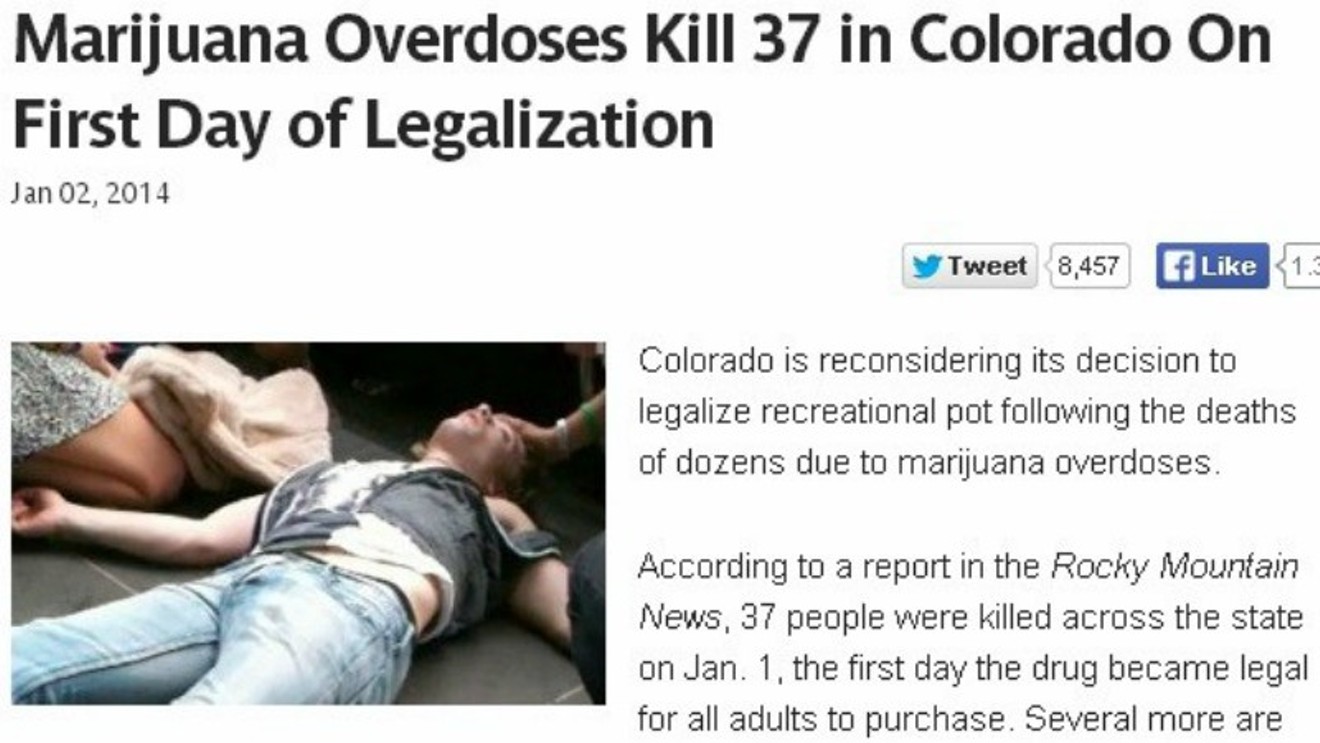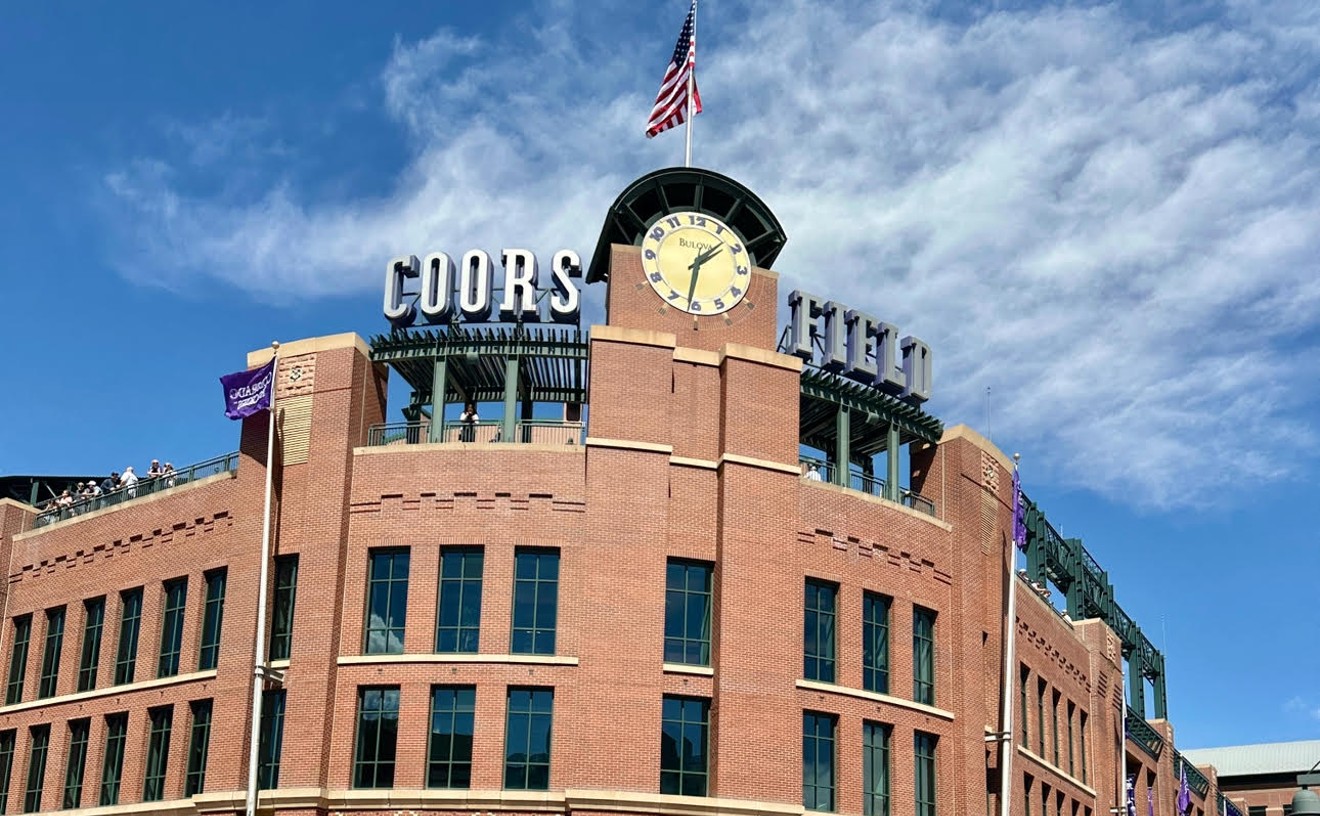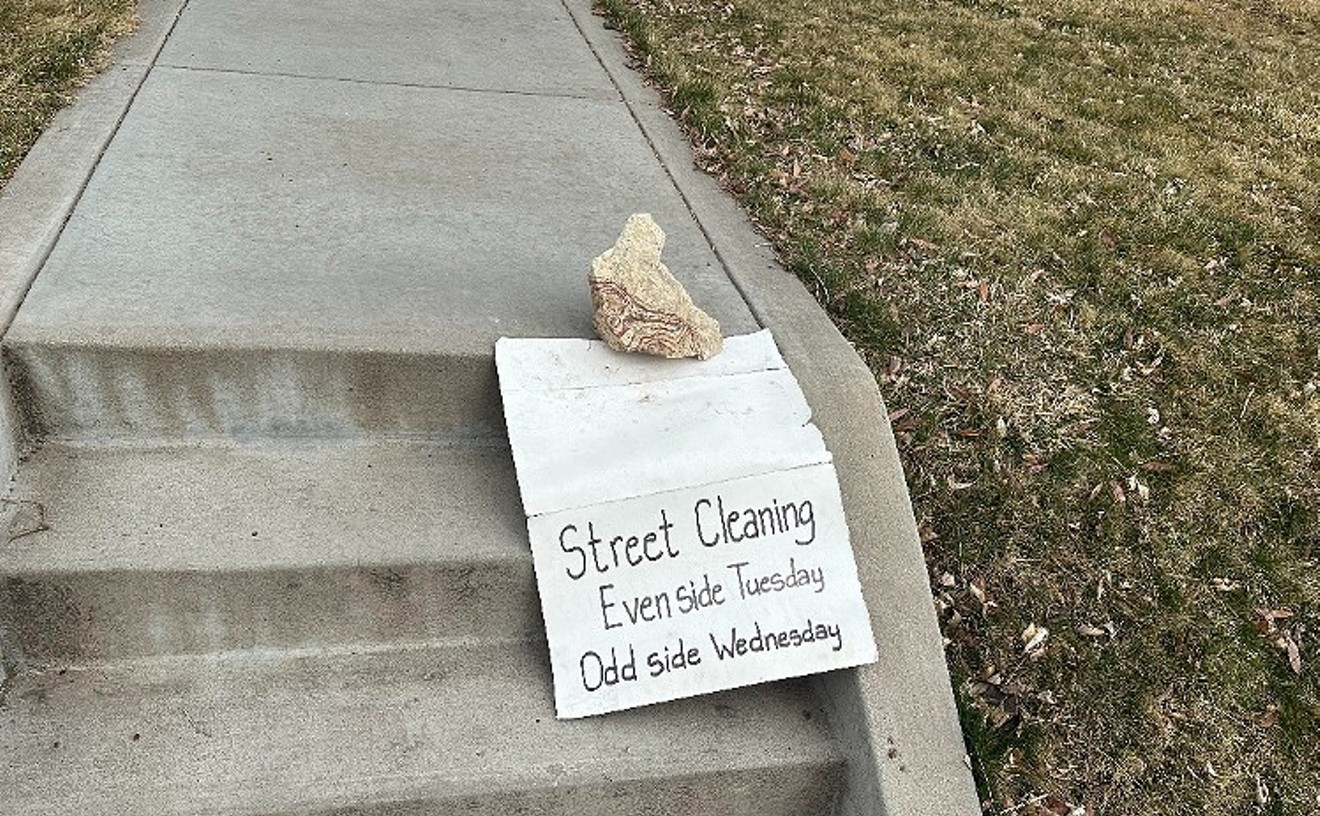That site, TheNewsStation.com, is now live, and included among offerings that Marcus says "promote the positive business and economic impact of the cannabis industry" is a section in which he tears apart what he sees as marijuana "fake news."
One for-instance: According to TheNewsStation.com, Louisiana state representative Dodie Horton recently spoke about a 2014 satirical news article from The Daily Currant claiming that 37 people had died from "marijuana overdoses" in Colorado after legalization went into effect.
No, they didn't, as Horton has now admitted. She blamed the misinformation on "a so-called 'trusted' source."
Check out six more examples of fake marijuana news below.
NEW CANNABIS OPPOSITION GROUP TARGETS KIDS WITH #FAKENEWS
"Back in November, right around the five-year anniversary of marijuana legalization, a new group called the Marijuana Accountability Coalition announced they were setting up," Marcus notes. "They just put out the usual talking points about how marijuana is devastating kids with the same baseless, misleading statistics that have now been debunked. They like to use stats that have no correlation to marijuana legalization, using years that aren't really relevant.
"The most recent state and federal data shows that in the years since marijuana legalization, fewer teens are consuming. That's now just a fact. It's not a debatable topic, even though when MAC formed, it was under the assumption that marijuana was leading to an increase in teens using, and that would damage children. I wanted to point out that they're going to have a difficult time pushing that message in Colorado when we have clear evidence to the contrary.
"Our opponents are standing on the wrong side of history. It's very similar to the gay-marriage movement. A lot of people opposed it up until the day the Supreme Court approved it. But afterward, more and more people started to get to know gay people who'd gotten married and stopped caring about the issue altogether. Opposing gay marriage got to be passé. And the same thing is happening with the marijuana industry. As the roll-out expands nationally and continues to exceed everyone's wildest expectations, more and more Americans, and especially more and more Coloradans, are in favor of legal marijuana. That's what our opponents are up against."

On the campus of Colorado Christian University.
Colorado Christian University via TheNewsStation.com
"I went to a Colorado Christian University event that examined the consequences of marijuana legalization five years later. It was pretty much one-sided, this symposium. There were members of law enforcement who didn't like it, health care leaders who didn't like it, national opponents like Kevin Sabet [CEO and president of Smart Approaches to Marijuana]. It was ground zero for the marijuana-opposition movement. But I was well-received. A lot of folks there knew me from my previous job as a reporter, and I was well-received.
"I had a great time listening to the forum by Smart Colorado, which is a group dedicated to keeping marijuana out of the hands of children — and we're similarly aligned with them in the cannabis industry. We, too, want to keep it out of the hands of children. So I sat through their forum, listened, took notes and didn't open my mouth until an older gentleman raised his hands and asked, 'Is everyone in the cannabis industry empowered by the Mafia?'
"At first, I chuckled to myself. But then I realized he was serious. So I raised my hand and said, 'Would you guys mind?' And one of the women from Smart Colorado who recognized me said, 'Yes, thank you.' And I ended up having a seven-to-ten-minute Q&A with the folks in the audience, where I just answered their questions. I assured them that I wasn't in the Mafia — that I was a reporter who'd just come over to the industry — and highlighted some of the public-education stuff we've been working on, and talked about how the cannabis industry is taking its own initiative on educating people on consumption: not driving while intoxicated, purchase limits, corporate responsibility.
"It ended up being really productive. Afterward, I was milling around, and people came up to me, shook my hand and said, 'We disagree with you on a lot of things, but thank you for coming.' And one woman came up to me and said, 'I've never met anyone who works in the cannabis industry before,' which just shows you how much of a sheltered bubble some of these opponents are in. I've been pushing them, when they have these kinds of events, to invite people from the cannabis industry, so they can point things out that aren't true. Because it's a problem when folks on both sides of the debate aren't even familiar with each other."

Cannabis industry leader Dan Anglin took on attendees at the Conservative Political Action Conference.
"Dan Anglin is a leader in the cannabis industry, and in February, he took on some marijuana opponents at CPAC [the Conservative Political Action Conference, another event staged on the Colorado Christian University campus]. It was kind of a big deal when you consider it. You had the most prolific conservative convention in America invite someone from the marijuana industry to debate Jeff Hunt, perhaps one of the most high-profile conservatives against marijuana right now.
"Kudos to CPAC for inviting Dan to have a fair debate. But we put it under 'Fake News' because of what the opponents were going to say — and why it was good to have Dan there to debunk it."

A Fox31 "Cannibals Tasting Room" screen capture.
Fox31 via TheNewsStation.com
"This was more tongue-in-cheek. We have a bill in the legislature to have cannabis tasting rooms, but there was an error on Fox31, where they called it 'cannibals.'
"It was just a mistake. I've been in lots of newsrooms, and those kinds of typos happen. So we were just having fun. But, no, we're not trying to legalize tasting rooms for cannibals."
RHETORIC FROM MARIJUANA OPPONENTS COULD FUEL OPIOID EPIDEMIC
"Earlier this year, SAM and MAC released a five-page report that relied on outdated data — data that has mostly proved to be misleading. This is nothing new from our opponents. We've seen this kind of 'reefer madness' for a long time. But highlighting opioids in the report isn't reefer madness.
"The opioid epidemic is taking tens of thousands of lives, and studies like a recent one out of Minnesota show that in legal marijuana states, prescription drug abuse is down. And in Minnesota, it was down by an astonishing number — nearly 63 percent said they were either using fewer opioids or had stopped using them altogether after they started using medical marijuana for pain.
"So when our opponents say marijuana legalization has led to a spike in the opioid epidemic, that's the worst kind of fake news — because it's a dangerous statement to be making. In this country as a whole, we're trying to take a bite out of the opioid epidemic, and if medical marijuana can help even in the slightest — and early indications are that it's helping a lot — then it's completely irresponsible for opponents to use that as a negative message. They're discouraging people from finding an alternative and helping to fuel this epidemic.
"We're not talking about reefer madness. We're talking about people's lives."
STUDY: NO, MARIJUANA LEGALIZATION IS NOT LEADING TO A SPIKE IN HOMELESSNESS
"Chief Troy Davenport is a police chief in Pueblo, and he's going around saying that marijuana has led to a spike in homelessness there. But there's just been a very concrete, comprehensive study, the first of its kind out of Pueblo County, and the researchers couldn't find any connection between homelessness and marijuana [for additional details, see 'Sh*tstorm After Study Finds No Causal Link Between Marijuana, Homelessness'].
"That doesn't seem to matter to Chief Davenport. I've seen him speak on numerous panels and I've read what he's said in a lot of stories — and some of them went national. He's always been anti-marijuana, and he's still anti-marijuana, no matter what the study showed. And that's a problem. You'd think studies like this one would actually inform law enforcement and elected officials, so they could have a more educated understanding when it comes to marijuana and its impacts. But the chief chose to ignore it. He chose to use anecdotal evidence from a handful of the officers from his department, who tell him they see homeless people and they're in town because of marijuana.
"I tend to lean in the direction of data, statistics and researchers with doctorates who go to the trouble of getting to the bottom of these things, not random comments. But the chief ignored the study, and that's why it goes into the realm of fake news."















